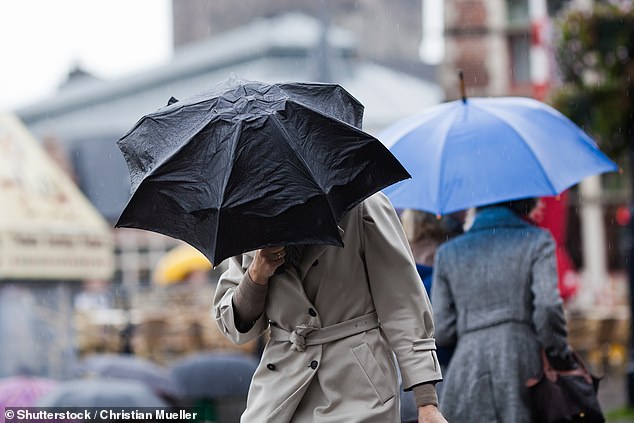Does Christmas stress you out? Blame your hormones for winter spikes!
Are you feeling stressed this Christmas season? You’re not alone.
Stress levels peak in December, with almost half of the UK population reporting feeling anxious.
And it’s not just the pressure to put together a perfect Christmas dinner or panic-buy presents. Research shows that the stress hormone called cortisol is already higher in winter due to the cold weather and lack of daylight.
High levels can also increase the risk of weight gain, headaches and even heart problems.
Now experts have revealed the simple steps we can take to lower our cortisol and reduce stress.
‘One of the key things to lower cortisol is getting outside and having exposure to daylight,’ says Dr Ruqia Zafar, an NHS GP and medical director of the hormone clinic Future Woman.
This is because vitamin D, obtained from direct sunlight, is needed to produce melatonin – the hormone that regulates our sleep. Research shows that poor sleep levels cause a surge of cortisol, which is why vitamin D is vital.
However, research shows that the majority of Britons do not get enough vitamin D in winter due to a lack of sunlight.
High levels of stress around Christmas can increase the risk of weight gain, headaches and even heart problems, but our cortisol can be lowered by exercise and being outdoors (file photo)
An estimated one in six adults and almost one in five children have vitamin D levels lower than recommended, putting them at greater risk of cortisol spikes, the Ministry of Health reported in 2022.
“So if you wake up in the winter while it’s still dark and have to rush to work, you’re not getting the sunlight exposure your body needs to keep your cortisol in check,” says Dr. Zafar.
Another trigger for increased stress levels in winter is that people spend less time in nature.
Studies show that just 20 to 30 minutes a day outdoors can lower cortisol levels, lower blood pressure and strengthen the immune system.
In addition, unhealthy food and drinks during Christmas can increase blood sugar levels. This has also been shown to increase cortisol.
Dr. Zafar says another important way to lower cortisol is to spend time doing nothing.
“This may mean spending more time away from your phone and devices, or going outside,” she adds.
Midday sunlight is also thought to help us and prepare us to wind down in the evening. However, digital screens, which contain a lot of blue light, do the opposite at night: keep cortisol levels high and melatonin levels lower by mimicking daylight.

The stress hormone cortisol is already higher in winter due to the cold weather and lack of daylight (archive photo)
Dr. Zafar says there are supplements patients should take.
‘You may also want to look into taking vitamin D and magnesium supplements, both of which help with sleep. But consult with your doctor first.’
For people with little exposure to sunlight, a daily vitamin D supplement of ten micrograms is recommended from October to March in England, Wales and Ireland, and all year round in Scotland.
Or, she adds, there may be an even simpler solution: “Save a few minutes every day to breathe deeply.”
